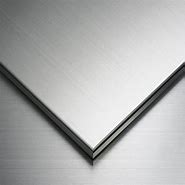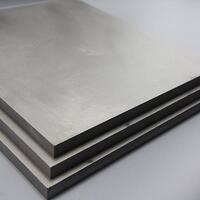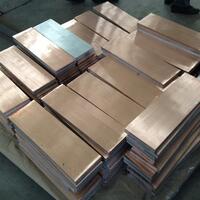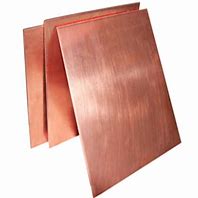Discover premium surfactants for various applications. Reliable export services, competitive prices, and high performance guaranteed.
Title: Titanium Shield Satisfies Steel Muscle: The Unbeatable Duo Guarding Chemical Compressors .
(Corrosion Resistance And Sealing Performance Of Titanium Steel Composite Plates For Chemical Compressors)
Main Product Keywords: Titanium Steel Composite Plates.
1. Just What Are Titanium Steel Compound Plates? .
Consider a superhero team-up. On one side, titanium. It chuckles when faced with brutal chemicals. Beyond, carbon steel. It brings significant muscular tissue and foundation. Titanium Steel Compound Plates are specifically that: an effective partnership. Producers bond a layer of corrosion-fighting titanium straight onto a thicker layer of strong, affordable steel. It’s not simply a basic covering. Advanced strategies like explosion welding or roll bonding produce a near-permanent, molecular-level bond. This fusion creates a solitary plate product. This product inherits the very best attributes of both steels. The result is a material using the architectural stamina of steel. It additionally offers the phenomenal deterioration resistance of titanium. This distinct mix is important for requiring jobs. Chemical compressors are one such requiring work. These compressors deal with consistent attack from aggressive liquids and high stress. Common materials commonly fail below. These composite plates step in as the dependable service.
2. Why Rust Resistance is Non-Negotiable in Chemical Compressors .
Chemical compressors are tough places. They manage horrible things. Think solid acids, potent antacid, salty salt water, and unpredictable solvents. These liquids don’t play great. They aggressively eat away at metal surface areas. Normal carbon steel might be solid. But it rusts and rusts promptly in this atmosphere. Failings happen. Leakages occur. Costly downtime takes place. Safety risks end up being extremely actual. Pure titanium stands up to corrosion incredibly well. Its surface creates an extremely challenging oxide layer. This layer imitates an unseen shield. It secures the steel beneath from chemical assault. Nevertheless, using solid titanium for entire compressor parts is typically also costly. The framework also might not be strong sufficient. Titanium Steel Compound Plates solve this flawlessly. The titanium layer encounters the harsh liquids. It acts as the sacrificial shield. It takes the chemical hit. The steel layer behind it supplies the essential stamina and rigidness. This keeps the compressor running accurately for years. It protects against tragic failures. It stays clear of pricey unplanned stops. Security remains paramount.
3. Exactly how Do These Plates Supply Flawless Securing Performance? .
Maintaining every little thing sealed tight is crucial in a compressor. Leaks are bad. They waste item. They develop risks. They damage environmental policies. Titanium Steel Composite Plates stand out here as well. However exactly how? The secret lies in the bond. That surge or roll-bonded joint isn’t just strong. It’s likewise unbelievably thick and consistent. There are no voids, no voids, no weak points at the user interface. This seamless bond suggests the plate works as one solid item. When you maker flanges or real estates from this plate, the sealing surfaces are continual. They are made completely from the corrosion-resistant titanium face. There’s no seam where the titanium fulfills the steel. This joint could be a prospective leak path in various other styles. The excellent bond integrity also suggests the plate manages pressure and thermal biking well. It doesn’t peel. It does not develop micro-cracks where leaks might begin. So, gaskets and seals work perfectly versus the smooth titanium surface area. This guarantees no leakages. Performance remains high. Safety stays uncompromised.
4. Where Else Do These Super Plates Shine? (Beyond Compressors) .
Chemical compressors are a significant application. Yet the power of Titanium Steel Compound Plates prolongs a lot additionally. Anywhere severe chemicals satisfy high stress or architectural needs, these plates are a top option. Take a look at huge chemical reactors. They need dependable vessels. Heat exchangers dealing with corrosive liquids require durable tubesheets. Pollution control scrubbers fight acidic gases daily. They rely upon these plates. Offshore oil and gas platforms encounter seawater corrosion regularly. They make use of these compounds in crucial piping and pressure vessels. Desalination plants turning seawater right into fresh water rely on them. Power plant flue gas desulfurization systems deal with sulfuric acid. They need this titanium-steel shield. Also sought after pulp and paper manufacturing, where aggressive alcohols prevail, these plates confirm their well worth. The core benefits drive this broad usage. You get titanium’s near-immunity to deterioration. You obtain steel’s acquainted toughness and reduced price. You get a product constructed to last in the hardest commercial environments.
5. Titanium Steel Compound Plates: Your Top Inquiries Answered .
People typically ask usual concerns regarding these plates. Here are clear answers:.
Are they far more costly than normal steel? Yes, ahead of time expense is more than basic carbon steel. However think long-lasting. The unbelievable rust resistance means components last a lot, a lot longer. You stay clear of constant replacements. You avoid pricey manufacturing shutdowns for repair work. You prevent safety occurrences. Over the tools’s lifetime, the complete expense is commonly reduced. It’s a financial investment in reliability.
Can you repair them if damaged? Yes, specialized welding techniques exist. Repairing the titanium cladding layer is feasible. But it requires expert welders. They require particular skills and products. It’s not such as welding plain steel. Prevention is constantly much better. Proper layout and handling decrease damages.
Is strong titanium much better? Strong titanium provides supreme rust resistance. But it’s very pricey. It likewise does not have the stiffness of steel. For huge, high-pressure components needing both strength and deterioration resistance, the composite plate is normally the smarter, a lot more practical selection. It balances performance and cost effectively.
How thick is the titanium layer? This varies based upon the application’s demands. It depends on just how harsh the setting is. It depends upon the anticipated life expectancy. Regular titanium layers range from about 1.5 mm to 5mm or even more. The steel backing is much thicker. It gives the major architectural support. Engineers compute the specific thickness needed.
(Corrosion Resistance And Sealing Performance Of Titanium Steel Composite Plates For Chemical Compressors)
Are there options? Various other choices exist. Thick titanium finishes applied by welding or splashing are one. Lining steel vessels with loosened titanium sheets is an additional. However these methods typically have dangers. The bond might not be as perfect. Leakages can occur at seams. Titanium Steel Composite Plates supply an even more trusted, monolithic solution. The bond stability transcends. This makes them the favored choice for essential, high-pressure securing applications.






